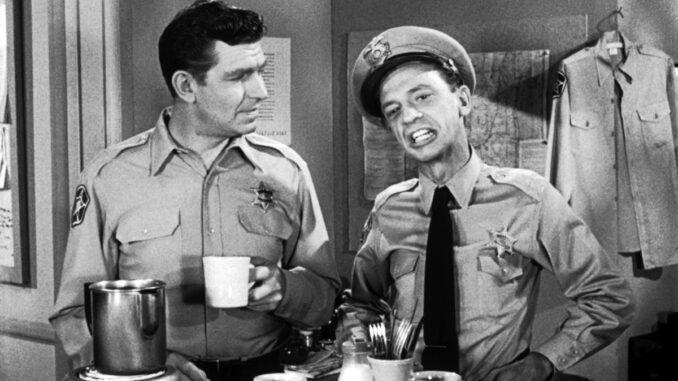
The world of comedy thrives on control, precision, and the delicate dance between character and actor. Yet, sometimes, the most sublime comedic moments aren't those perfectly executed, but rather those where the carefully constructed facade cracks, revealing the raw, unadulterated joy of performance. For Don Knotts, a master of nervous energy and high-strung vulnerability, the inability to maintain a straight face during an iconic scene wasn't a flaw; it was a testament to his genius, a spark of authentic humanity that elevated a moment from merely funny to truly legendary.
Consider any classic Andy Griffith Show scene featuring Barney Fife attempting to assert authority, explain a ridiculously convoluted theory, or demonstrate a misguided notion of police procedure. Picture Barney, chest puffed out, eyes wide and darting, hands gesticulating wildly, perhaps holding a prop — a single bullet, a half-eaten sandwich, a crumpled piece of paper outlining his latest "plan." The air around him is thick with his own self-importance, his voice rising in pitch as he tries to impress, to educate, to convince. He's a human pressure cooker, building to an inevitable eruption of flustered pronouncements and exaggerated posturing.
In the midst of this controlled chaos, stands Andy Taylor, the anchor of sanity and the master of the understated reaction. Andy’s role is crucial here; his calm, almost imperceptible smirk, the slight tilt of his head, or the slow, deliberate blink of an eye serve not to interrupt Barney, but to amplify his absurdity. Barney, lost in his own intricate web of illogic, is oblivious to the humor he generates. He believes himself to be the picture of competence, perhaps even wisdom.
The tipping point arrives. Barney might be explaining his theory of the "one-man crime wave" with an escalating series of hand chops and guttural grunts. He might be demonstrating the correct way to approach a suspicious bush, complete with a crouch, a tiptoe, and an overly dramatic whisper. Or he might be trying to teach Andy some obscure regulation from the Manual of Police Procedures, Revised Edition, quoting verbatim from a dog-eared pamphlet. As he reaches the crescendo of his performance, the self-seriousness becomes so utterly preposterous that even Barney, in his character, begins to struggle.
Perhaps it's a flicker in his eye, a subtle twitch at the corner of his mouth, or a barely suppressed gulp. Suddenly, a genuine, uncontrollable smile begins to spread, fighting against the grim set of his character's jaw. His wide eyes, still darting with feigned intensity, betray a glint of genuine amusement. He might turn his head slightly away from the camera, attempting to hide the burgeoning grin, or bite his lip, the effort of restraint visible in the tension in his neck. A little cough, a forced clearing of the throat, anything to regain composure. But it’s futile. The absurdity has gotten to him. The sheer comedic power of the situation, often magnified by Andy Griffith’s own barely contained laughter (which was legendary for making Knotts break), becomes too much.
This breaking of character, this involuntary laugh that ripples across his face, is more than just a blooper. It’s a profound moment of connection. It tells us that Don Knotts, the actor, was as delighted by Barney Fife’s antics as the audience was. It pulls back the curtain, not to reveal a flaw, but to showcase the pure, unadulterated joy of creation. It humanizes both Barney and Knotts, confirming that the line between actor and role was often beautifully blurred. The scene transcends the script, becoming a shared secret between performer and viewer – a moment of collective amusement that reminds us of the authentic human spirit behind the carefully crafted artifice.
In these "broken" moments, Don Knotts didn't just play a character; he experienced him, found him funny, and allowed that genuine mirth to spill out. It’s why those scenes resonate so deeply, why they are etched into our collective memory as iconic. They remind us that the greatest comedy isn't just about perfect timing or clever lines, but about the infectious, uncontrollable laughter that bubbles up from the wellspring of human connection, a testament to the magic that happens when an actor, for a fleeting second, forgets to act.